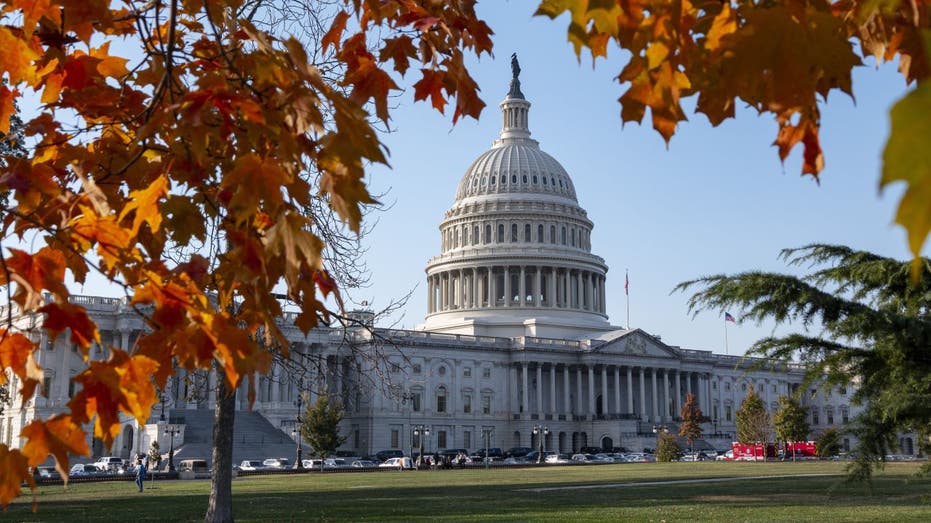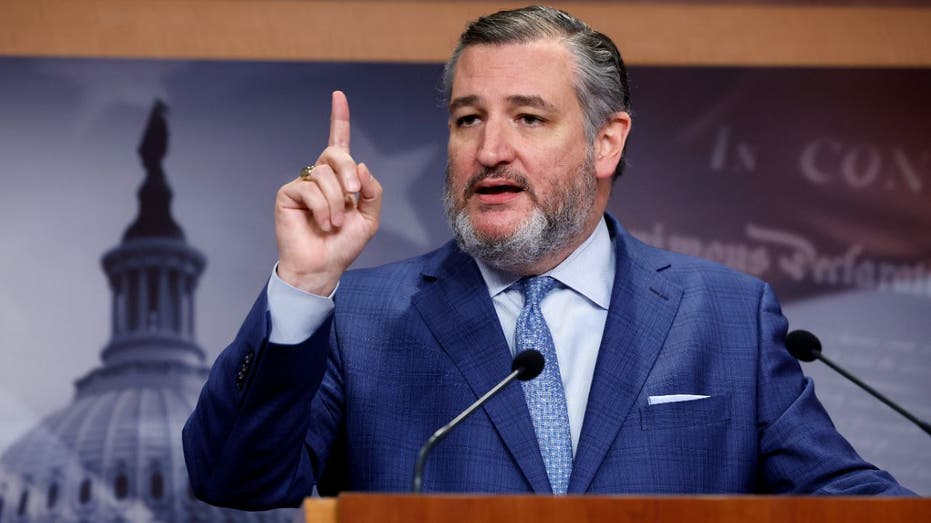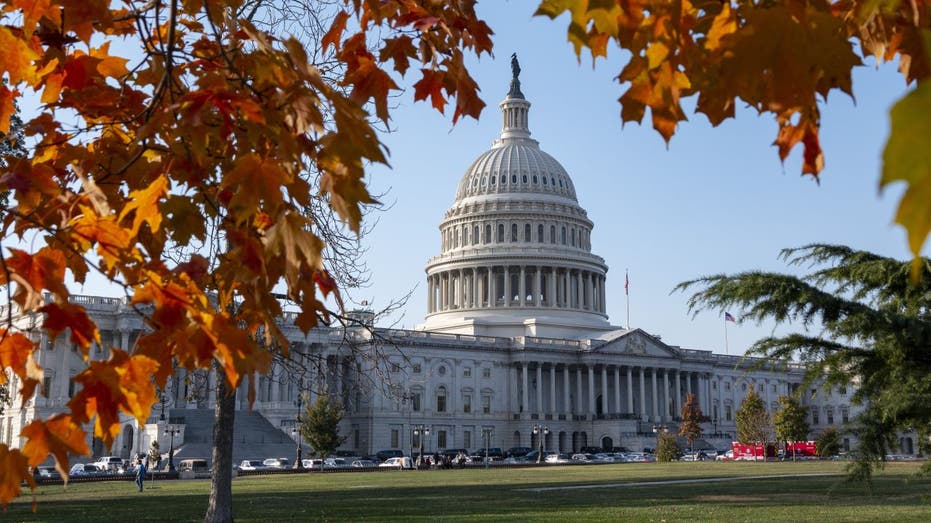Americans for Tax Reform President Grover Norquist compares and contrasts Donald Trump and Kamala Harris’ respective tax plans while weighing their estimated costs.
The U.S. Chamber of Commerce recently launched a seven-figure spending program in a variety of key swing states and battleground districts around the country that aims to educate voters about the election’s implications for tax policy and where the candidates stand.
Election Day is looming two weeks away and the Chamber’s push looks to inform voters about how the outcome of various races around the country will impact tax policy in 2025. A variety of tax policies impacting households and businesses are due to sunset at the end of next year, meaning Congress will be under pressure to negotiate new tax reforms to prevent automatic tax hikes from taking effect.
Ashlee Rich Stephenson, senior political strategist at the Chamber of Commerce, told FOX Business in an interview that it’s “abundantly clear” that tax policy issues should be debated “when constituents and voters are hypersensitive and paying attention,” so the group decided to launch its tax advocacy during election season.
“We think it’s a pretty good time, especially when some folks will be making very critical decisions. In fact, whether or not to send some people back to Washington or maybe vote others out, will be really important to our members when it comes to the ultimate conversation on taxes right around the corner,” she explained.
CHAMBER OF COMMERCE RELEASES TAX POLICY PRIORITIES AHEAD OF ELECTION

The next Congress will face a debate over whether to allow significant tax cuts to expire at the end of 2025, resulting in higher taxes for households and businesses. (Kevin Carter / Getty Images)
The Chamber’s voter education push features ads thanking policymakers for supporting pro-growth tax policies for businesses and families and encouraging them to continue to do so. The group will be running such ads supporting 14 Republicans in House races as well as one Democrat, plus Sen. Ted Cruz, R-Texas.
It’s also running contrast ads calling on Sen. Jon Tester, D-Mont., and two House Democrats to do more to protect the families, workers and businesses they represent from a potential tax hike.
“I think it’s an appropriate time, if you will, to interject into the conversation and ensure constituents know what electeds have been on the right or the wrong side of the issue,” Stephenson said.

The Chamber of Commerce is running ads supportive of Sen. Ted Cruz, R-Texas, in his re-election bid. (Chip Somodevilla / Getty Images)
CHAMBERS OF COMMERCE CALL TO EXTEND TRUMP TAX CUTS, AVOID ‘LARGEST TAX INCREASE IN AMERICAN HISTORY’
Neil Bradley, chief policy officer at the Chamber of Commerce, told FOX Business that while candidates may sometimes campaign on proposals which are “aspirational in nature” but don’t really have an action-forcing event linked to them, that’s not the case in this election cycle as the next Congress faces tax policy deadlines that will compel action.
“If Congress does absolutely nothing, then there’s a $4.5 trillion automatic tax increase on American employers and families – by far the largest automatic tax increase in American history,” Bradley explained. “So the men and women who are going to get elected this November have no choice but to deal with that.”
“Now, they’re going to have options when it comes to how they deal with it, and whether they decide to keep the pro-growth tax policies that are helping support greater economic growth and rising wages, or whether they choose to allow some of them to expire, or even worse, proactively raising taxes on employers and investment,” Bradley said.
HARRIS CALLS FOR RAISING CORPORATE TAX RATES TO 28%
Neil Bradley of the Chamber of Commerce discusses the importance of tax policy in the business community
Among the tax policies that are due to sunset at the end of 2025 are the tax rates that were lowered by the 2017 law, as well as the increased standard deduction and doubled child tax credit. The caps on the state and local tax (SALT) deduction and the mortgage interest deduction are also due to expire, as is the reduced estate tax.
The pass-through deduction for non-corporate businesses is also set to expire next year, while the Tax Cuts and Jobs Act’s provision allowing businesses to fully expense investments in things like equipment and machinery is phasing out and will expire at the end of 2026.
Bradley noted that U.S. businesses are facing substantial uncertainty over the future tax code as they grapple with important decisions about investments that would impact their firms’ futures.
GET FOX BUSINESS ON THE GO BY CLICKING HERE
“We’ve got people who are making big decisions that are going to create jobs, grow the economy, etc., and at the moment they’re sitting on their hands because they just don’t know what the political system is going to do – that shouldn’t happen,” Bradley said.
